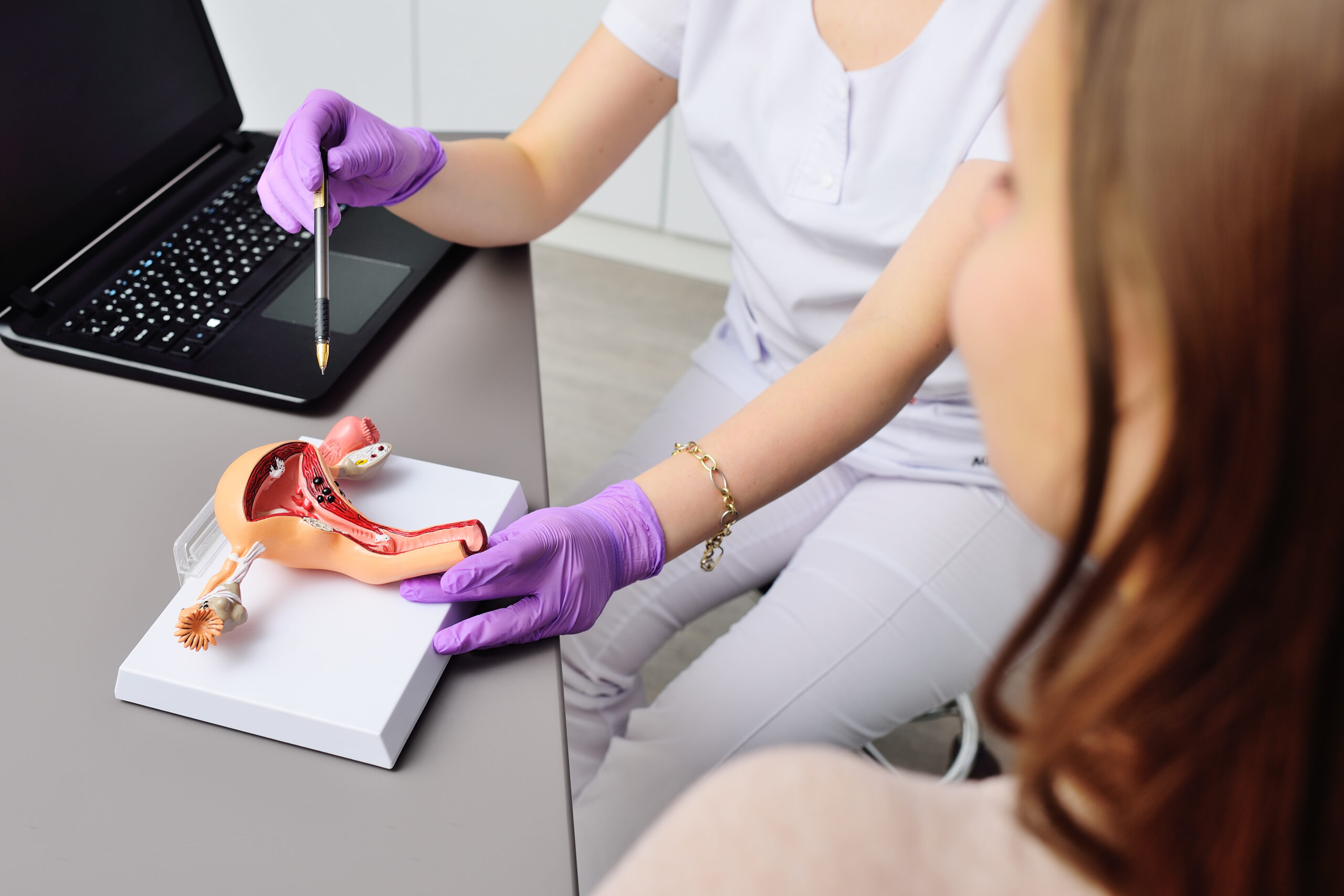
By: A Woman’s Place in Naples, FL
Polycystic ovary syndrome (PCOS) is one of the most common causes of infertility, but it’s also one of the most treatable. Early diagnosis and proactive management can dramatically improve fertility outcomes and reduce long-term risks. In this Q&A, A Woman’s Place in Naples, FL answers your most pressing questions about how early intervention for PCOS can help preserve your fertility and protect your health.
Q: How does PCOS impact fertility?
A: PCOS affects fertility by disrupting ovulation—the process by which the ovaries release an egg each month. Without regular ovulation, it’s more difficult to conceive. PCOS often causes irregular periods, or even complete lack of periods, which signals that ovulation isn’t happening as it should.
Q: Why is early intervention so important?
A: The earlier PCOS is diagnosed and treated, the better the outcomes—especially when it comes to fertility. Early treatment helps:
- Restore regular ovulation and menstrual cycles
- Prevent worsening insulin resistance and hormone imbalance
- Reduce the risk of developing endometrial hyperplasia (precancer of the uterine lining)
- Address underlying metabolic issues like prediabetes or high cholesterol
- Improve future pregnancy health and reduce miscarriage risk
Many women go undiagnosed for years, so early recognition of symptoms—such as irregular periods, acne, weight gain, or excess hair growth—can make a big difference in protecting your fertility.
Q: What treatments can help improve fertility in women with PCOS?
A: Several options are available depending on your health and goals:
- Lifestyle changes: Weight loss through healthy eating and physical activity can restore ovulation in many women. Even losing just 5–10% of body weight can boost fertility.
- Ovulation-stimulating medications: Letrozole or clomiphene citrate (Clomid) are often prescribed to encourage the ovaries to release an egg.
- Metformin: This insulin-sensitizing medication can help regulate cycles and support ovulation, particularly in women with insulin resistance.
- Supplements: Myo-inositol and D-chiro-inositol are often used to support hormone balance and improve ovulatory function.
- Advanced reproductive technology: For women who don’t respond to first-line treatments, options like intrauterine insemination (IUI) or in vitro fertilization (IVF) may be considered.
Q: Can early treatment prevent infertility altogether?
A: In many cases, yes. Early intervention gives your body time to respond to treatment before symptoms become more severe or complications develop. The longer PCOS goes untreated, the more likely it is to result in persistent ovulation issues and even long-term damage to reproductive health.
Q: What are the signs I should see a doctor early?
A: See your OB/GYN if you experience:
- Irregular or absent periods
- Difficulty tracking ovulation
- Acne or excess facial/body hair
- Unexplained weight gain
- A family history of PCOS or type 2 diabetes
If you’re planning to conceive soon or in the future, don’t wait. Addressing PCOS now can increase your chances of natural conception and improve your overall reproductive health.
Take Control of Your Fertility Early
If you’ve been diagnosed with PCOS—or suspect you may have it—early action is key. At A Woman’s Place in Naples, FL, we offer expert diagnosis, compassionate guidance, and fertility-focused PCOS care tailored to your unique needs. Don’t delay care. Schedule your appointment today.
Further Reading
American Medical Association – What doctors wish patients knew about polycystic ovary syndrome: AMA.org
By: A Woman’s Place in Naples, FL
Polycystic ovary syndrome (PCOS) is one of the most common causes of infertility, but it’s also one of the most treatable. Early diagnosis and proactive management can dramatically improve fertility outcomes and reduce long-term risks. In this Q&A, A Woman’s Place in Naples, FL answers your most pressing questions about how early intervention for PCOS can help preserve your fertility and protect your health.
Q: How does PCOS impact fertility?
A: PCOS affects fertility by disrupting ovulation—the process by which the ovaries release an egg each month. Without regular ovulation, it’s more difficult to conceive. PCOS often causes irregular periods, or even complete lack of periods, which signals that ovulation isn’t happening as it should.
Q: Why is early intervention so important?
A: The earlier PCOS is diagnosed and treated, the better the outcomes—especially when it comes to fertility. Early treatment helps:
- Restore regular ovulation and menstrual cycles
- Prevent worsening insulin resistance and hormone imbalance
- Reduce the risk of developing endometrial hyperplasia (precancer of the uterine lining)
- Address underlying metabolic issues like prediabetes or high cholesterol
- Improve future pregnancy health and reduce miscarriage risk
Many women go undiagnosed for years, so early recognition of symptoms—such as irregular periods, acne, weight gain, or excess hair growth—can make a big difference in protecting your fertility.
Q: What treatments can help improve fertility in women with PCOS?
A: Several options are available depending on your health and goals:
- Lifestyle changes: Weight loss through healthy eating and physical activity can restore ovulation in many women. Even losing just 5–10% of body weight can boost fertility.
- Ovulation-stimulating medications: Letrozole or clomiphene citrate (Clomid) are often prescribed to encourage the ovaries to release an egg.
- Metformin: This insulin-sensitizing medication can help regulate cycles and support ovulation, particularly in women with insulin resistance.
- Supplements: Myo-inositol and D-chiro-inositol are often used to support hormone balance and improve ovulatory function.
- Advanced reproductive technology: For women who don’t respond to first-line treatments, options like intrauterine insemination (IUI) or in vitro fertilization (IVF) may be considered.
Q: Can early treatment prevent infertility altogether?
A: In many cases, yes. Early intervention gives your body time to respond to treatment before symptoms become more severe or complications develop. The longer PCOS goes untreated, the more likely it is to result in persistent ovulation issues and even long-term damage to reproductive health.
Q: What are the signs I should see a doctor early?
A: See your OB/GYN if you experience:
- Irregular or absent periods
- Difficulty tracking ovulation
- Acne or excess facial/body hair
- Unexplained weight gain
- A family history of PCOS or type 2 diabetes
If you’re planning to conceive soon or in the future, don’t wait. Addressing PCOS now can increase your chances of natural conception and improve your overall reproductive health.
Take Control of Your Fertility Early
If you’ve been diagnosed with PCOS—or suspect you may have it—early action is key. At A Woman’s Place in Naples, FL, we offer expert diagnosis, compassionate guidance, and fertility-focused PCOS care tailored to your unique needs. Don’t delay care. Schedule your appointment today.
Further Reading
American Medical Association – What doctors wish patients knew about polycystic ovary syndrome: AMA.org










